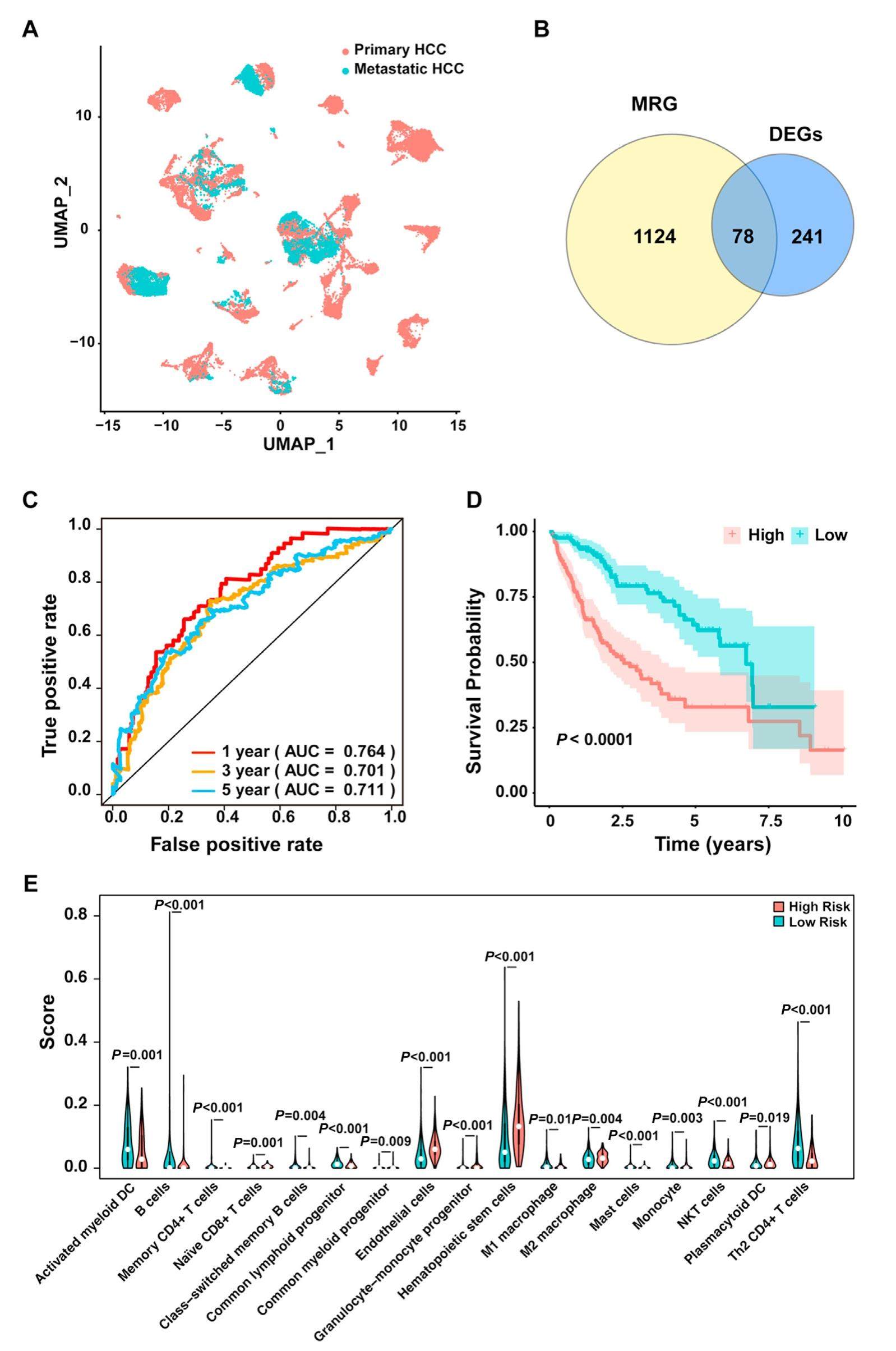
Construction of a novel predictive model with seven metabolism-related genes for hepatocellular carcinoma by machine learning


Single-cellRNAsequencing (scRNA-seq) andmachine learning technologies, developed rapidly in recent years, offer an unparalleled opportunity to study the mechanism of tumorigenesis. Changes in metabolism-related genes (MRGs) result in hepatocellular carcinoma (HCC) progression, and MRGs have the potential to be used as a clinical prognostic indicator. In this study, a machine learning model was built using LASSO regression to find prognostic genes and create a new MRG risk signature of HCC patients. The patients were divided into the MRG high-and low-risk groups based on their risk scores. Significant overall survival advantages were observed in the MRG low-risk group. In addition, risk score and cancer status were used to establish a nomogram with high accuracy. The calibration curves and decision curves further demonstrated the satisfactory agreement between the predicted and observed values in the probability of overall survival. Subsequently, we discovered the different characteristics of the MRG highand low-risk group patients based on tumor mutation burden, gene set enrichment, and immune infiltration. Our study identifies a novel MRG signature for risk-stratification and accurate identification of HCC patients with poor subtypes, which could precisely predict the prognosis of HCC and may guide personalized treatment for HCC patients.
